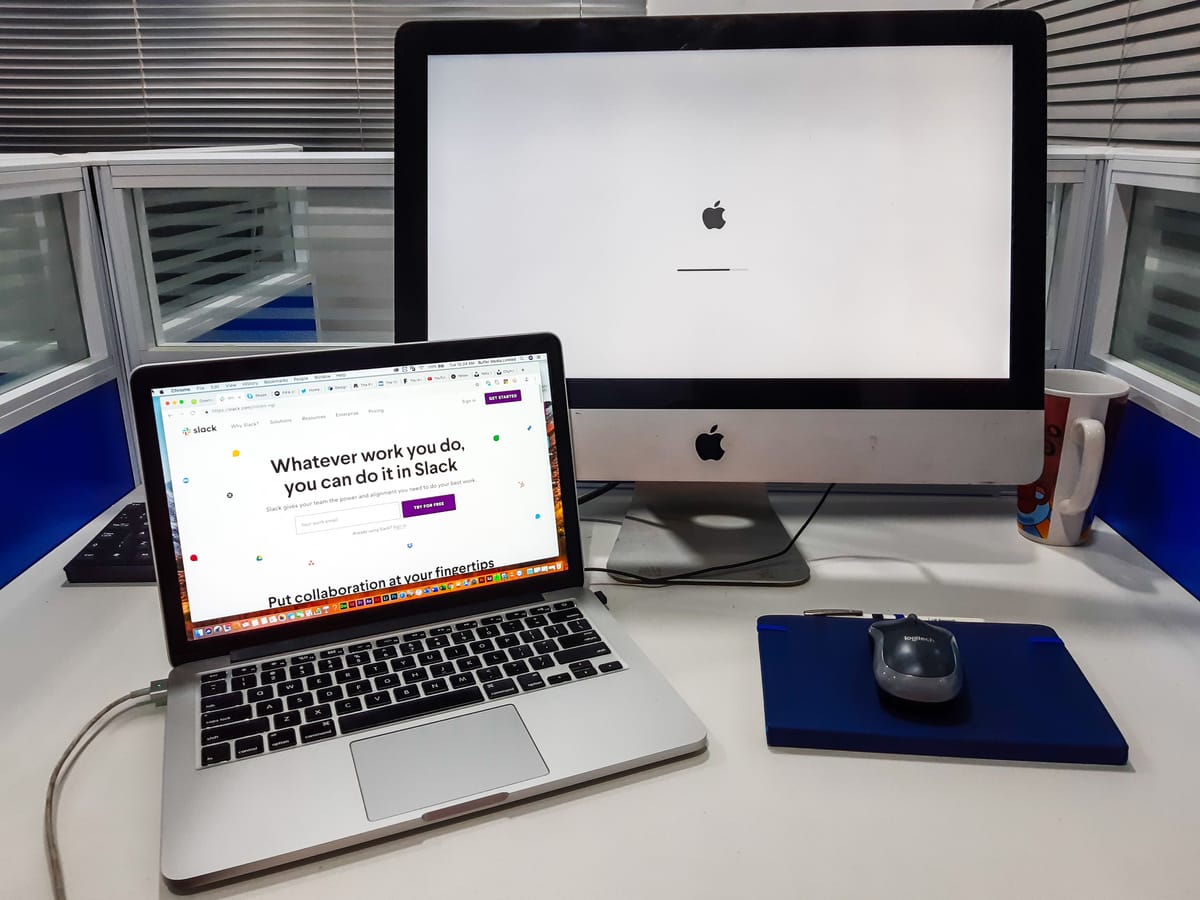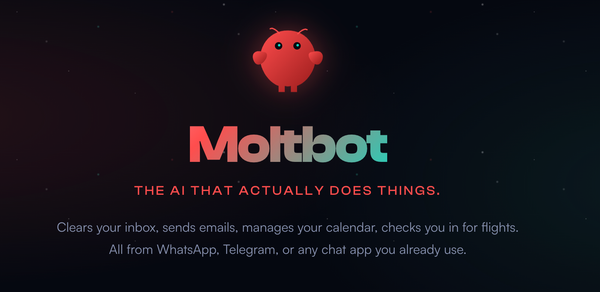How Microsoft crushed Slack
And why the era of worker-centered work tools may be over

Slack’s life as an underdog darling of Silicon Valley ended on November 2, 2016. That’s when the upstart communication startup published an open letter to Microsoft in the New York Times, offering the tech giant an insincere “welcome” to the world of workplace chat software. The occasion was Microsoft’s launch of Teams, a Slack clone that would come bundled with the company’s popular Office 365 suite of products.
In its letter, Slack warned Microsoft that “Slack is here to stay,” adding: “we’re just getting started.” But the 4 million users it had at the time would increase to just 12 million four years later, while Microsoft — which added Teams to its 365 bundle without increasing the price — took Teams from zero to 115 million users.
That disparity helps to explain why Slack sold itself this week to Salesforce. The deal, which values Slack at $27.7 billion on revenues of $833 million over the past year, has largely been greeted with cheers. (Ben Thompson offers a typically excellent rundown of the opportunity here for both Salesforce and Slack.)
But it also feels like the end of an era — one where workers gained new power to bring their own tools to the office, and decide for themselves how they wanted to get work done. Slack first succeeded with small teams who wanted to accelerate their work, and was often dragged into organizations by early adopters. But today, waves of consolidation are leaving people with fewer real choices.
The rise of smart phones in the early 2010s brought with it a new surge of workplace productivity tools that made mincemeat of everything that had come before them. Box and Dropbox brought easy file storage and sharing. Evernote introduced the idea of ubiquitous, cloud-synchronized note-taking. Sunrise created a more social calendar, while Mailbox and Acompli reimagined email for the mobile phone.
Slack tiptoed into the conversation in the middle of the decade, and almost immediately became the fastest-growing enterprise software tool of all time. In 2015, just 18 months after it launched, Slack reported having more than 1 million daily users — a figure then unheard-of in enterprise software.
It had a great backstory — a last-ditch pivot from a failed video game called Glitch — and, in Stewart Butterfield, one of the tech world’s most charming founders. It also had a bold pitch: it was going to “kill email” — or, at the very least, reduce your reliance on it. And it would do so by integrating hundreds of other services into real-time work chat, creating a kind of all-knowing command console for your organization.
The company embodied the belief, so common in Silicon Valley, that the best product would win in the end. “Building a product that allows for significant improvements in how people communicate requires a degree of thoughtfulness and craftsmanship that is not common in the development of enterprise software,” the company wrote in its open letter to Microsoft. “How far you go in helping companies truly transform to take advantage of this shift in working is even more important than the individual software features you are duplicating.”
And yet if there’s a lesson of the past four years, it’s that thoughtfulness and craftsmanship only got the company about 10 percent as far as Microsoft did by copy-pasting Slack’s basic design. In its open letter, Slack famously told Microsoft: “You’ve got to do this with love.” In 2020, looking at Slack’s size, the idea seems laughable. What’s love got to do with it?
The thing is, I hate that this was the outcome for Slack. I love good productivity tools, and was rooting for Slack to someday become as good as the company hyped it up to be. (And perhaps it still will: like most giants Salesforce has a mixed track record when it comes to the success of its acquisitions, but some seem to be thriving. When I asked about this on Twitter, people had a lot of good things to say about post-acquisition Heroku.)
But Slack’s struggle to succeed as an independent company sadly mirrors that of many one-time innovators in enterprise productivity. Mailbox died and Acompli sold to Microsoft, where it became the mobile Outlook app. Evernote is a pale shadow of its former self. Of that early cohort, only Box and Dropbox became — and still remain — public companies.
Why is this the case? To get some insight, I called up Aaron Levie, Box’s affable CEO. In Levie’s telling — and he also wrote a blog post about the Slack sale — it all comes down to sales. The idea that workers would someday choose all their own tools was always a fantasy, he told me, in part because most workers don’t event want to think about their tools. In such a world, the winning app will almost always be one with a giant, er, salesforce behind it.
Microsoft had one. Slack didn’t. Enter Salesforce.
“The reality with the enterprise is that you can have the best product, but that’s not good enough,” Levie told me. “You need distribution. And what Salesforce has — they have the procurement officers, they have the finance people. They have all of the apparatus you need to interact with to sell software, and they have it for the top 100,000 corporations around the world.”
Levie is bullish on the acquisition, because it puts Slack and Salesforce on more even ground.
“The only advantage Microsoft has is distribution, and so now they’ve neutralized the advantage that Microsoft has had,” he said. “All of a sudden, they can actually fulfill the ultimate promise of the opportunity, because they have 10 times the amount of salespeople that can go distribute this thing into corporations around the world.”
Assuming Levie is right — and I wouldn’t bet against him — that means the medium-term future of work is increasingly a choice between three giants: Microsoft, Salesforce, and (in a distant third) Google. And with that, the golden age of worker choice in productivity tools seems to be coming to an end.
That’s not to say that the incumbents won’t always face new challengers. But I wonder whether the low ceiling that Slack turned out to have has implications for some of the other fast-growing productivity companies of the current moment. Should Slack’s sale diminish our expectations for Airtable, or Notion, or Coda? Don’t get me wrong — I’m confident their investors will all get their money back, and then some. But do they have a real future outside the arms of a monolith?
If not, then the productivity market will become as consolidated as any number of other spaces on the internet, from app stores to search engines to social networks. And as our government antitrust regulators begin to awaken after a long period of hibernation, I wonder if they’ll have anything to say about it.
The Ratio
Today in news that could affect public perception of the big tech companies
⬆️ Trending up: Google’s new paid deals with publishers mean that access to some paywalled content will now be available to readers for free. Good for publishers, good for Google, good for democracy. (Anthony Ha / TechCrunch)
🔃 Trending sideways: Microsoft made changes to the “productivity score” feature in its 365 platform, which gave employers fine-grained data on individual employees’ use of email, chat, and other features. Critics called it “full-fledged workplace surveillance tool;” Microsoft says it will now detach the data from individual employee names. (Todd Bishop / GeekWire)
🔃 Trending sideways: Amazon abandoned a test of a worker safety measure that involved tracking the location of warehouse workers through their personal cell phones. Big week for pushback on worker surveillance initiatives! (Mark Di Stefano / The Information)
⬇️ Trending down: Google illegally spied on workers before firing them, according to a new lawsuit by the National Labor Relations Board. Two employees were fired for looking at their colleagues’ calendars as part of an organizing effort. Google says it didn’t do anything wrong. (Zoe Schiffer / The Verge)
Governing
⭐ In a pair of late-night tweets, President Trump threatened to veto the defense reauthorization act if Congress does not repeal Section 230 of the Communications Decency Act. But it’s not clear he has the leverage to make it happen. (Tony Romm / Washington Post)
The ACLU sued the Department of Homeland Security over its purchase of cellphone location data to track immigrants. Separately, the department’s inspector general said he would investigate the matter after Senate Democrats began asking questions. (Cat Zakrzewski / Washington Post)
Massachusetts passed a statewide ban on the use of facial recognition technology by police. It may be the largest US ban of facial recognition tech yet, and is part of a growing patchwork of laws regulating it around the country. (Taylor Hatmaker and Zack Whittaker / TechCrunch)
EveryAction, a Salesforce-like platform for liberal campaigns and causes, acquired the organizing company Mobilize. The move bolsters what Bloomberg calls “the central nervous system for practically all of Democratic politics.” (Joshua Green / Bloomberg)
Amid rising tensions between China and Australia, WeChat deleted the Australian prime minister’s response to a fabricated image sent by a Chinese foreign affairs official. Twitter left the post up. (Eryk Bagshaw, Anthony Galloway and Shane Wright / Sydney Morning Herald)*
* The description of this item has been corrected from an earlier, incorrect characterization.
Industry
⭐ Facebook teamed up with former employees of popular game developer Telltale for Rival Peak, a new reality show where viewers will influence the story. It feels … maybe a little too high-concept? We’ll see. Gene Park had the details at the Washington Post:
Rival Peak is a Facebook Watch program in which artificial intelligence-driven “contestants” will live, work and exist for every minute of the day within the fictional region of Rival Peak, a mountainous forest region that emulates the Pacific Northwest. With a diverse cast of internationally-based characters, Facebook users will decide what each contestant of the show will do in the game, how they behave, and who will basically be “voted out” by the end of every week of its 12-week run.
The game/show is being developed by Pipeworks Studios and Genvid Technologies, including former staff of the beloved-but-shuttered Telltale Games, who created some of the strongest narrative adventure games of the century, including “The Walking Dead.” So think of it like a mix of a Telltale adventure game with branching stories for each of its 12 characters, with reality shows like “Survivor" and “Big Brother.” Rival Peak also hides a mystery that’s going to be revealed at the end of its run, but otherwise the audience determines the fate of the cast.
Amazon is in talks to buy podcast studio Wondery for $300 million. It makes popular, lurid true-crime shows including “Doctor Death,” “Dirty John” and “Over My Dead Body.” (Benjamin Mullin and Anne Steele / Wall Street Journal)
Spotify says its do-it-yourself podcast app acquisition Anchor resulted in the creation of more than 1 million new podcasts this year. More than 100,000 creators have generated at least some revenue through Anchor’s sponsorships product to date. (Ashley Carman / The Verge)
Apple named its best apps of 2020. Officially making the company a publisher under Section 230. (A joke!) (Sarah Perez / TechCrunch)
Google Maps added a community feed. Kind of a weird time to promote doing things in the community, honestly! (Igor Bonifacic / Engadget)
Google Messages can now be scheduled to send later. (Manuel Vonau / Android Police)
YouTube added features to its live product, Premieres. New trailers, themes, and live pre-shows can help creators promote their live streams and make more money from them. (Sarah Perez / TechCrunch)
TikTok is testing three-minute videos. That’s three times longer than the current length. What does the algorithm know that we don’t?? (Julia Alexander / The Verge)
On TikTok, fans are making their own Ratatouille musical. One of the few social trends I’ve been early to lately, thanks to the TikTok algorithm, this is also hands-down my favorite social-media story of the year. (Christina Morales / New York Times)
A profile of Eric Feigl-Ding, a doctor whose alarmist tweets about COVID-19 have earned him the scorn of his peers — and more than 250,000 Twitter followers. The Harvard-trained epidemiologist has repeatedly deleted his threads after critics pointed out that they contain misinformation. (No, COVID-19 is not transmitted by farts.) (Jane C. Hu / Nieman Lab)
Things to do
Stuff to occupy you online during quarantine
Check out Tech Worker, a new independent news site for the tech workforce. It was created by former TechCrunch and Pando journalist Paul Bradley Carr and will feature contributions from a variety of prominent tech workers-turned-critics, including Susan Fowler, Claire Stapleton, Tracy Chou, and Yael Eisenstat.
Those good tweets
It’s a quiet day, maybe I should take a look at my twitter mentions…
— Matt Slack (@slack) 9:30 PM ∙ Dec 1, 2020
if i flirted with you this year it doesn’t count i thought we were abt to die
— juan (@JUARANTINE) 3:45 AM ∙ Dec 1, 2020
Thank you corporation very cool
— Hey what the fuck is Manifest Gang bruh?? (@Bass_Buny) 10:03 PM ∙ Nov 30, 2020
we will reveal a new trans celebrity every day until our demands are met.
— Niko Stratis (@nikostratis) 8:34 PM ∙ Dec 1, 2020
This guy is just asking for trouble
— Gore Vidal Sassoon (@JimmyJazz1968) 8:57 PM ∙ Dec 1, 2020
Talk to me
Send me tips, comments, questions, and alternate endings for Slack: casey@platformer.news.



